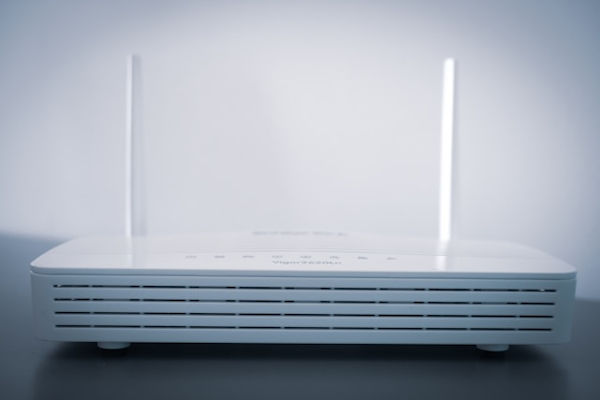- KITCHEN &
LAUNDRY - HOME &
GARDEN - TECHNOLOGY
& GAMING - HEALTH BEAUTY
& FITNESS - OFFICE &
COMPUTERS - KIDS NURSERY
& TOYS - CARS DIY
& OUTDOORS - MENS
CLOTHING - WOMENS
CLOTHING - HOLIDAYS
& TRAVEL - EBAY LOCAL
DEALS
Updated: 16/09/2022 15:12:33
Broadband vs SIM Routers
Live in a house with old wiring or an area with slow broadband speeds? A 4G or 5G router may be the answer

What are 4G and 5G routers and how do they work?
4G and 5G routers work on contracts similar to your mobile phone. After purchasing a router, all you need to get started is a SIM card and you can be connected in seconds. Unlike traditional broadband, there's no need to wait for an engineer to get you started, nor do you need a fixed landline. You can plug your router in anywhere you like and immediately enjoy top speeds, though this is still dependent on coverage in your area.
What's included and what are the advantages?
One of the main providers of this new kind of technology is EE. They offer both a 4G and 5G option, with the 5GEE router able to reach speeds of 110mbps. With a 30m Wi-Fi range, you can get full coverage of the home, perfect for streaming, gaming and downloading in 4K and Ultra HD. 5GEE Home is powered by a chip that automatically switches between 4G and 5G to bring you a consistent download speed. You can connect up to 64 devices at a time, ensuring the whole home is connected.
The plans are flexible so if you don't know how much data you need you can start off on a low allowance and increase your plan at any time. Overall these SIM card routers can be great if you live in a rural area and we particularly like the flexibility compared to traditional broadband packages.
EE Mobile customer? Read on!
Perhaps one of the best benefits of a SIM operated router is that EE will give you extra data on your mobile too if you take out a monthly contract! Getting the 4G router will get you an extra 5GB a month, while the 5G router will get you an extra 20GB.
Alternatively, if you have a EE phone SIM contract, you can load some of your allowance onto the router, which we find can work out particularly cheap with the right SIM contract.
Shop EE Pay Monthly Mobile Broadband Devices
What are the downsides?
- Mobile coverage isn't as reliable as broadband. If you can get a landline you can almost certainly get fixed line broadband. However, mobile networks in general cover between 75% and 95% of the population.
- Fixed broadband has a much lower latency which makes it much better for gaming and video calls.
- Most fixed line broadband providers offer unlimited downloads.
- If you want a home phone line and number, it's usually cheaper to tag your broadband package on to your line rental. There are also more options available for add ons like BT Sport.
You have a couple of options if you're interested in using a SIM router. The first option is to take out a contract with your provider which includes the router. This usually involves an upfront cost and the monthly payments can range significantly depending on how much data you think you'll need and the speed you want. The other option is to buy a router outright then take out a seperate SIM contract. This tends to be the cheaper option overall for most people but the upfront cost will be more due to initially needing to buy the router itself.
The Verdict
Overall, mobile broadband is more suited to those who are constantly travelling and want to take the internet with them, or those living in rural areas with poor connection speeds. If you're looking for reliable broadband speeds and unlimited downloads, fixed line broadband is likely to be the best option for you in the long term. Most mobile broadband packages will offer plenty of data and speeds good enough for casual users, but for those looking to regularly download music or movies, fixed line broadband is still going to be the best option for you.
#advice
Comments
Related products


